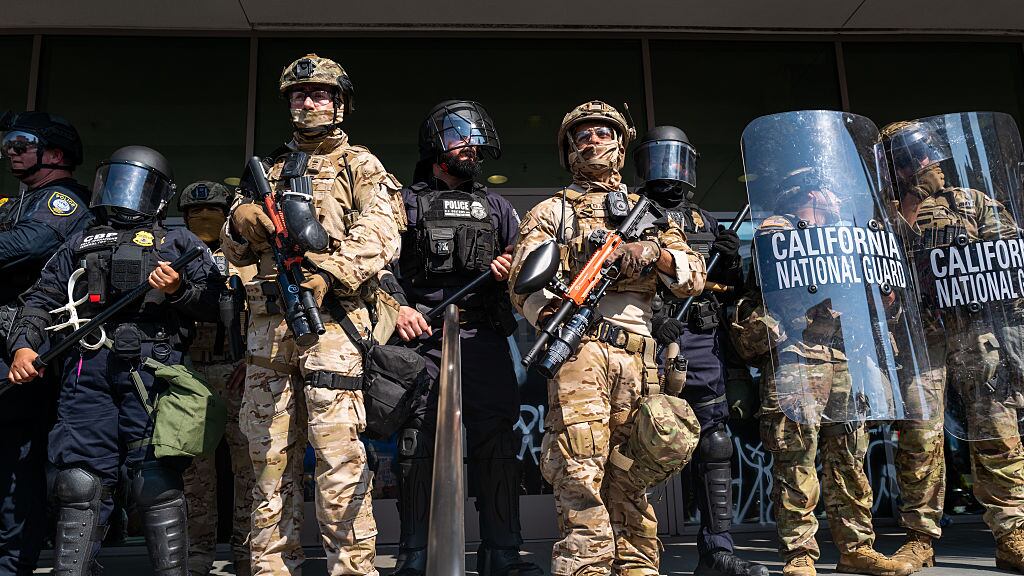A federal judge in San Francisco halted the deployment of the National Guard in California ordered by President Donald Trump, determining that the action contravenes the 1878 Posse Comitatus Act, which prohibits the use of the armed forces for domestic law enforcement without explicit authorization from Congress.
In early June, the Trump administration deployed 4,000 National Guard members and 700 Marines. Most of them were demobilized by late July, and currently only about 300 National Guard troops remain active.
PUBLICIDAD
Judge Charles Breyer issued the ruling, stating that there was neither a rebellion nor a situation that justified the use of troops for policing functions on U.S. soil, according to USA Today. The judge argued that despite the unrest in Los Angeles in June, local security forces were sufficient to maintain order, meaning the military deployment was legally unjustified.
Military Use Without Legal Basis
According to the ruling, President Trump and Defense Secretary Pete Hegseth planned to expand the military presence to other cities such as Oakland and San Francisco, citing protest control and immigration law enforcement.
However, Judge Breyer explained that “evidence at trial showed that the defendants systematically used armed soldiers (whose identities were often obscured by protective gear) and military vehicles to establish security perimeters and traffic blockades, engage in crowd control, and generally demonstrate a military presence in Los Angeles.”
The decision emphasized that there was no threat warranting such intervention and that the use of the National Guard under these conditions directly violated federal law. It also questioned the manner in which the troops were employed, including their participation in direct control over civilians.
The Case and Its Repercussions
The judicial decision follows a three-day trial that concluded on August 13, where the role of the military in supporting Immigration and Customs Enforcement (ICE) and other security agencies was examined. State prosecutors argued that the armed forces engaged in police functions, including detentions and perimeter control.
During the proceedings, the federal government’s defense maintained that the military acted only to protect federal agents during security operations, particularly in raids against marijuana plantations in the Los Angeles area. They argued their role was limited and remained within the legal framework.
The case has been closely watched in other cities. Trump also ordered the National Guard deployed in Washington, D.C., and has threatened to send troops to Chicago. Although his authority in the capital differs due to its federal status, local authorities such as Chicago Mayor Brandon Johnson called these threats “tyranny.”
In June, an appeals court had temporarily allowed Trump to maintain control of California’s National Guard after an earlier ruling by Breyer that declared the deployment illegal. Governor Gavin Newsom, who filed the lawsuit, insisted there was no emergency justifying the measure. In his words: “The ruling is clear: Trump is breaking the law by trying to create a national police force with himself as its chief.”
